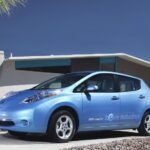Last Updated on June 30, 2024 by SPN Editor
Delhi, the bustling metropolis of India, is experiencing a significant transformation in its transportation landscape. With a growing emphasis on sustainability and environmental consciousness, the city is making remarkable strides in promoting electric mobility and is poised to become India’s EV Capital.
The Municipal Corporation of Delhi (MCD) is at the forefront of these changes, spearheading initiatives to expand and make Delhi into India’s EV Capital.
The Need for EV Infrastructure Expansion
As the national capital and one of the most populous cities in the world, Delhi faces unique challenges when it comes to transportation. The city’s roads are often congested, and pollution levels have been a cause for concern. In this context, electric vehicles present a promising solution. They offer a cleaner and more sustainable mode of transportation while reducing the city’s carbon footprint.
However, for electric vehicles to truly flourish in Delhi, the city needs a robust and accessible charging infrastructure. This is where the Municipal Corporation of Delhi steps in with its ambitious plans to extend the EV charging network into the outer areas of the city.
A Strategic Initiative for Last-Mile Connectivity
The primary objective of this initiative is to promote the use of electric autos and vehicles, especially for last-mile connectivity. Last-mile connectivity is a critical aspect of urban transportation, and electric vehicles are well-suited for this purpose. They are nimble, cost-effective, and, most importantly, environmentally friendly.
By expanding the EV charging network into the outer regions of Delhi, the MCD aims to make electric mobility a viable and convenient option for residents across the city. This initiative is part of a broader strategy to reduce the city’s reliance on fossil fuels and transition towards cleaner and greener transportation alternatives.
Targeting Outer Delhi Areas
The MCD’s expansion plans specifically target areas in outer Delhi, including Narela, Najafgarh, and Rohini. These regions have, until now, had limited access to EV infrastructure. By establishing more charging stations in these areas, the MCD hopes to bridge this infrastructure gap and encourage the adoption of electric vehicles, leading to India’s EV Capital.
Collaborative Efforts to Make Delhi India’s EV Capital.
The success of this expansion initiative relies on collaborative efforts from various stakeholders. Power distribution companies and public sector undertakings (PSUs) are actively involved in identifying suitable sites for the new charging facilities. These stakeholders are not merely focusing on traditional charging stations but are also exploring the concept of battery swapping services.
Battery swapping is an innovative approach that allows electric vehicle owners to quickly replace their depleted batteries with fully charged ones. This approach can significantly reduce charging time and enhance the convenience of using electric vehicles.
Current EV Landscape in Delhi
At present, Delhi already has a growing number of EV charging stations. The MCD has allocated space for 584 charging stations, and out of these, 200 are already operational. Notably, there are 25 battery-swapping stations among them. However, a majority of these stations are concentrated in south, central, or east Delhi.
Recognizing the need for a more comprehensive EV charging network that covers all corners of the city, the MCD has taken on the challenge of expanding its infrastructure into the outer regions.
Localized Presence
As part of this expansion drive, the MCD is keen on establishing a localized presence for EV charging stations. For instance, Najafgarh, a prominent area in outer Delhi, already boasts charging facilities at 32 different locations. Similarly, Rohini, another suburban hub, has 12 charging stations in operation. The allocation of charging stations for Narela is currently in the pipeline.
Dedicated EV Charging Hubs
In a bid to further encourage the adoption of electric vehicles, the MCD is planning to create dedicated EV charging hubs. These hubs are designed to cater to the needs of cab aggregators, such as those operating electric cabs.
These specialized hubs will have the capacity to accommodate simultaneous charging for 10-15 electric cabs. This initiative not only supports the growth of electric mobility but also promotes ride-sharing services that are both sustainable and economically viable.
Stringent Evaluation and Unified Policy
While expanding the charging infrastructure is a priority, the MCD is also committed to ensuring the effectiveness and quality of these facilities. Before granting permissions for new charging stations, the MCD plans to conduct thorough evaluations of existing ones.
This meticulous approach is in line with the MCD’s unified policy, which aims to create a standardized and reliable charging network. Such uniformity is crucial for building trust among electric vehicle owners and promoting eco-friendly transportation practices.
Cost-Effective and Environmentally Conscious
Electric vehicles offer numerous advantages, both in terms of cost and environmental impact. The operational costs of electric vehicles are significantly lower, often amounting to less than Re 1 per kilometer. This makes electric vehicles an economically attractive choice compared to conventional vehicles powered by hydrocarbon fuels.
Moreover, electric vehicles produce zero tailpipe emissions, reducing air pollution and contributing to cleaner air quality in Delhi, a city that has grappled with smog and poor air quality in recent years.
Government’s Push for EV Adoption
The Delhi government has been actively supporting the adoption of electric vehicles through a series of progressive policies and initiatives. One such initiative involves the addition of technologically advanced and affordable charging points and battery-swapping stations at 42 new locations across the capital.
At these locations, individuals will be able to charge their electric vehicles at an astonishingly low rate of approximately Rs 3 per unit. This move is expected to further boost the popularity of electric vehicles among Delhi’s residents.
- Also Read: Electric Car Market in the United States
Delhi: India’s EV Capital
Delhi has firmly established itself as the India’s EV Capital. The city witnesses more than 5,000 new electric vehicle registrations each month. To date, over 2.2 lakh electric vehicles have been registered in Delhi.
The success story began with the launch of the Delhi government’s ambitious EV policy in August 2020. This policy offers subsidies to individuals purchasing electric vehicles and aims to ensure that 25% of all new vehicle registrations by 2024 are electric vehicles.
Accessible Charging Infrastructure
In addition to expanding the charging infrastructure, the Delhi government has introduced measures to make charging electric vehicles more accessible. Through an online single-window portal called “Switch Delhi,” consumers can easily have private EV charging points installed at their residences, housing societies, and various other locations. This streamlined process simplifies the transition to electric mobility.
A Bright Future for India’s EV Capital
With these concerted efforts and initiatives, Delhi’s electric vehicle ecosystem is poised for a bright and sustainable future. As the charging infrastructure continues to grow, and as electric vehicles become increasingly affordable, the streets of Delhi are set to become cleaner, quieter, and more environmentally friendly.
The upcoming launch of the Delhi government’s EV Policy 2.0, which promotes retro-fitment of traditional vehicles into electric ones, further demonstrates the city’s commitment to electric mobility. By addressing the high costs of retro-fitment through subsidies and incentives, Delhi aims to accelerate the transition to clean and green transportation.
Delhi is leading the charge in India’s electric vehicle revolution. With a growing network of charging stations, supportive government policies, and a burgeoning community of electric vehicle enthusiasts, the city is well on its way to becoming India’s EV Capital.
As electric vehicles become increasingly accessible and affordable, Delhi’s streets are poised to become cleaner, quieter, and more environmentally friendly.
1 thought on “Delhi’s Drive Toward Becoming India’s EV Capital”
Comments are closed.


[…] Also Read: Delhi’s Drive Toward Becoming India’s EV Capital […]